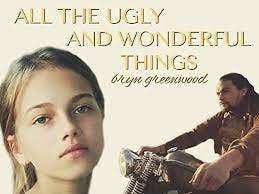Several years ago my first manuscript was rejected by a well-known and well-respected agent who offered this strange closing, “I wish you happier stories.” It’s true she represented a humour writer, but she also represented serious literary writers. Try as I might, I couldn’t come up with an example of a good novel that was “happy.”

I’ve often wondered what she was actually getting at. That particular story has a satisfying end—not happy, exactly, but resolved enough that there is inherent hope and promise. That’s how I like to end my stories, none of which one could say were “happy” stories. They all have a “knot,” as Sue Reynolds calls it; something to untangle and unwind. Stories begin with a dilemma, as Alan Watt says, a problem, an issue to be solved. Rarely, if ever, are they happy problems. I mean, seriously? Richard Scrimger talks about how authors need to be bad parents, and how we have to make bad things happen to our beloved characters. Otherwise, what kind of story do you have? A happy one? Maybe, but most certainly a boring one.

As readers we want to in some way see ourselves in a story; find out how a character got themselves out of a pickle, found the jewel that would set them or the world free, ditched the toxic boyfriend/lover/husband/wife, and so on. We give them problems to test their mettle, challenge them to do better, move the story forward, find out who they really are, and essentially, make the story interesting.
Come on, even fairy tales aren’t happy – not the real ones such as by the Brothers Grimm, definitely not mythological stories, and not Pulitzer or Booker or Giller prize winners.
(I loved this book by Bryn Greenwood, btw, and there is not one thing in this story that is “happy.” Resolved, yes. Satisfying, yes. Happy, no.)
On a personal level, I tend to attempt to avoid conflict. Unfortunately, that aspect of me sometimes results in blurting out things that I’ve tried to keep under wraps. It’s as if a charge builds with every little annoyance I don’t address until some minor affront flips the switch and a shitty comment flies out of my mouth. I don’t recommend holding stuff in. Just saying.
What do you do if you can’t keep your mouth shut? You take it to the page, is what. You bump up those annoyances and give them to your characters. You take the worst of yourself and create characters that need help. Hence, potentially unlikeable characters. Hence, potentially unhappy stories.
You can likely feel me still scratching my head fifteen years later over that agent’s comment. I realize that she likely didn’t mean precisely that. I imagine that she found the premise too depressing or she disliked my protagonist, and I couldn’t fault her there. One of my critique partners, after reading a ten-page submission of that story, sighed and said of the narrator, “Oh Simon, you’re such a floorcloth.”
Truthfully, that was a much more helpful response than wishing me happy stories. The friend’s feedback made me look at that character more closely. If I was going to make him compelling in any way, I had to pick him up off the floor. As an aside, it also made me realize that my choice of men might be somewhat misguided since the character of Simon was based on a man with whom I was currently enamoured.
In short, writing a “happy story” won’t get you far – not in creating a compelling narrative and not in coming to terms with situations or events in your life. It’s healthy to take our grievances to the page; our pain and our sorrow and our big old mistakes. On the page, we can work out our “issues” in a creative way, and hopefully keep us from burning down our own houses.

Caveat: If you are considering submitting for publication I don’t recommend a rant. Save that for your journal. You can always excavate a rant for gems to use constructively in your story or poem. You don’t want readers to slam the book shut or rip out their earbuds.
In closing, I do not wish you happy stories. I wish you stories and poems that touch both you and your reader, that demonstrate resiliency, resolve, or triumph over conflict, loss, and unhappy beginnings.






More wonderful insights from my mentor. Impeccable writing.
What a lovely, thoughtful and so very relevant post. Thank you. And I’m going to check in with my characters now and make sure no one resembles a floor cloth!